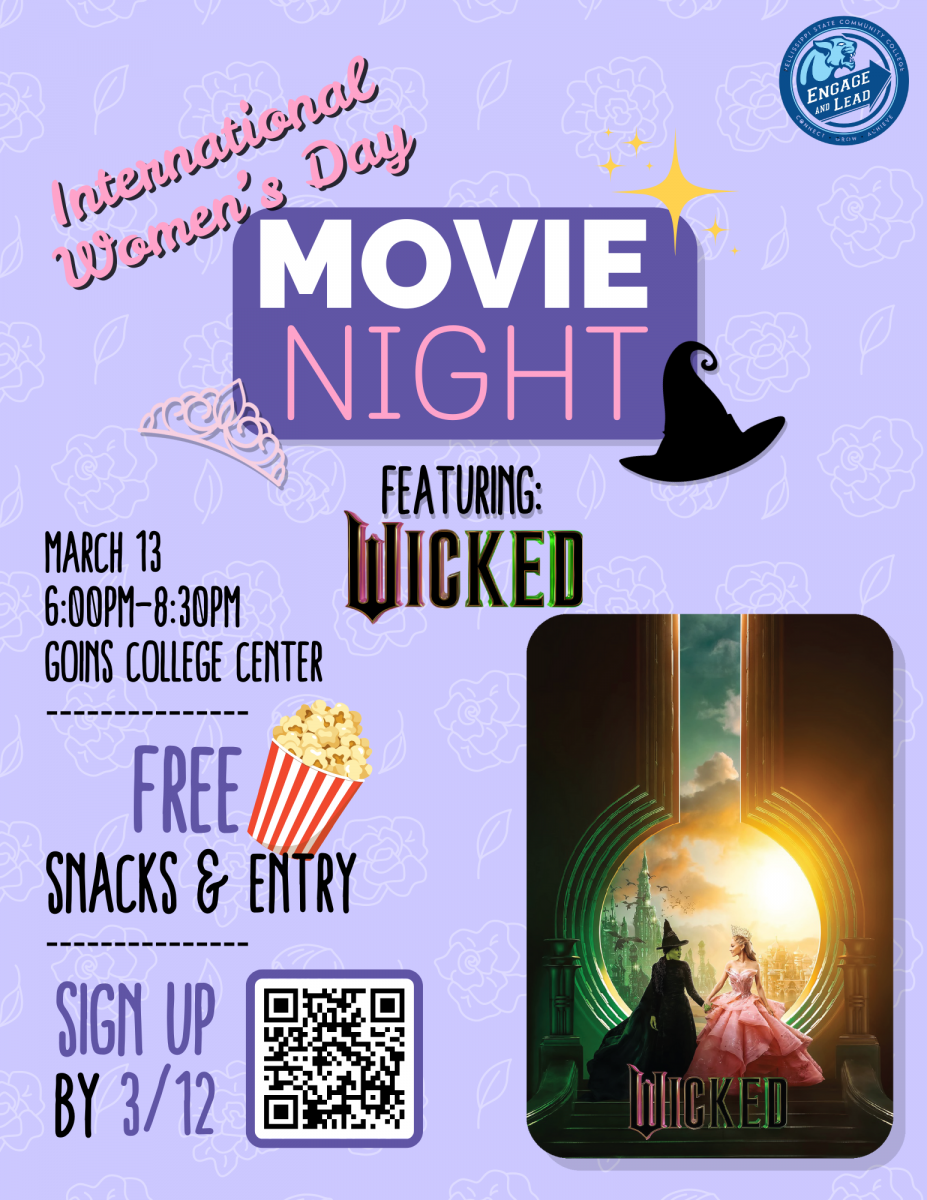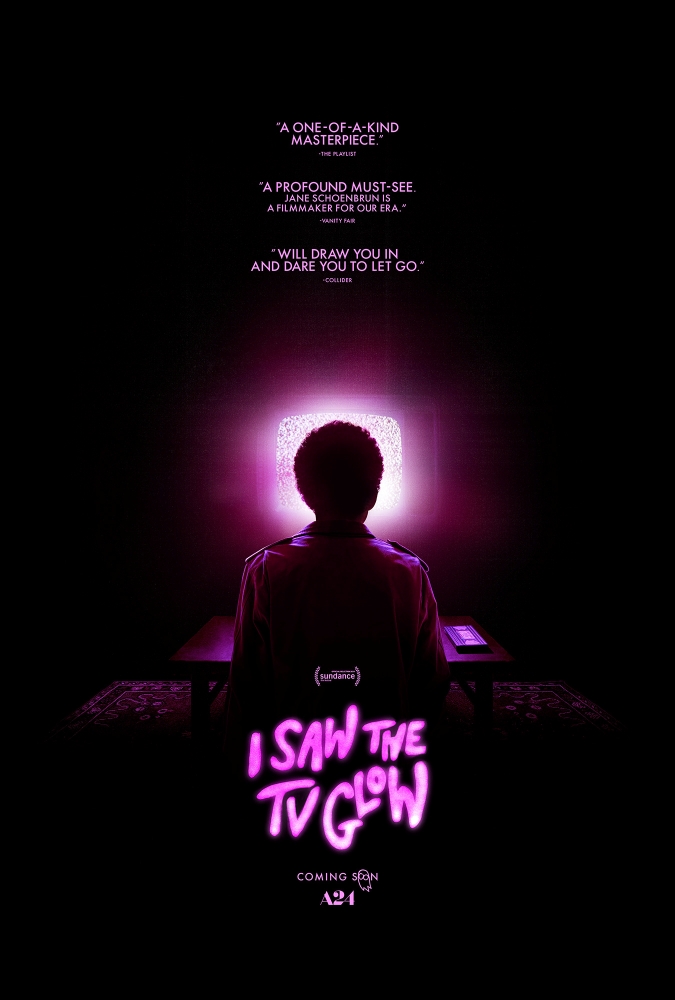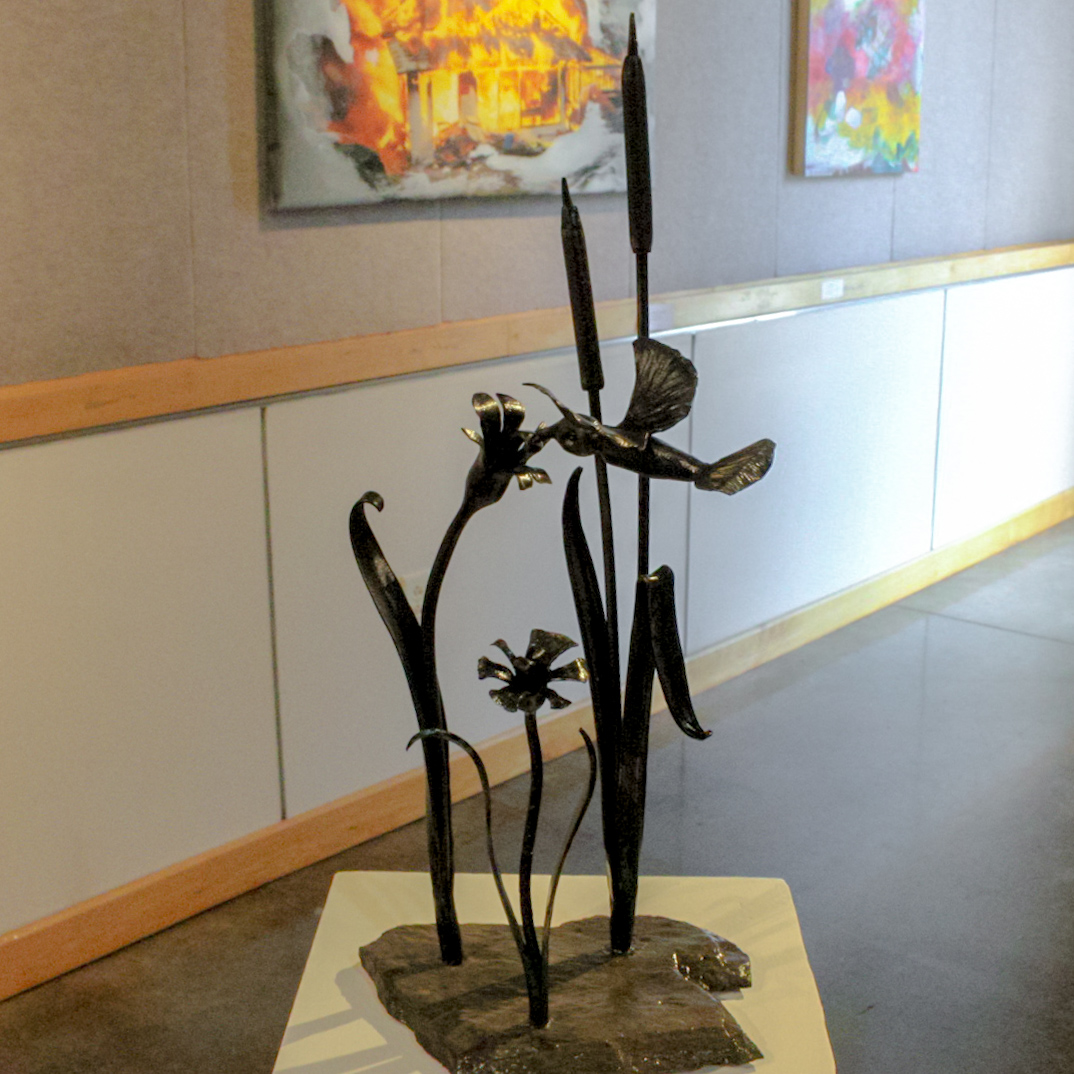
By Leyli Izadpanah, Staff Writer
In honor of Women’s History Month, a time to celebrate women’s history, achievements, and culture, Pellissippi State Community College hosted a free showing of the two time Academy Award winning musical fantasy film, Wicked. The iconic musical was nominated for ten Oscars (winning “Best Costume Design” and “Best Production Design”) and won a Grammy for its original cast album. To sweeten the deal for attendees, free snacks and drinks were provided for anyone who joined the watching party.
Director of Student Engagement and Leadership, Dr. Sharon Couch, shared a meaningful speech about why she brought everyone together to watch Wicked, which was the student’s top choice for the movie night. Dr. Couch explained that the film is one of the most diverse movies ever to be made in Hollywood. Among many actors and crew members from different races and backgrounds, the man who designed all the lush, rich, colorful, and intricate costumes was an African American man, Paul Tazewell, who became the first black man to win an Oscar for costume design.

Dr. Couch detailed her own experience of growing up feeling like a second class citizen for being an African American woman, comparing the real world issue of colorism to Elphaba’s greenness in the film. She says,
“Whatever color someone may be, everyone bleeds the same blood… The themes [of the film] really resonate with you, however you land in the world.”
The movie opens to Glinda, the good witch, confirming the death of the Wicked Witch of the West after the events of The Wizard of Oz, leading everyone to celebrate and sing “No One Mourns the Wicked.” This scene is filled with vibrant colors and grandiose celebration, as Ariana Grande does a wonderful job of encapsulating Glinda’s angelic appearance and vocals. It’s a perfect opening and arguably one of the most iconic scenes in the film.
One of the townspeople then asks Glinda, “Is it true you were her friend?” Glinda says yes, but it was a very long time ago, which leads to a flashback of Elphaba’s (Cynthia Erivo) backstory and childhood. The main plot of the film then takes the viewer on a devastating journey of Elphaba’s past, revealing that when she was born green, everyone was mortified; her own parents ignored her and only asked her to take care of her younger sister, Nessa Rose. Furthermore, as a child other children laughed at her and made fun of her, leading her to lash out and accidentally use her powers. Her backstory does an amazing job at giving the audience sympathy and relatableness to her. To me, this is one of the most essential parts of building a character and Wicked does it marvelously.
(Spoilers ahead!)
The narrative jumps to when Glinda and Elphaba meet for the first time at Shiz University, bumping into each other as Elphaba is taking her sister to school and end up rooming together. After accidentally using her powers, Elphaba catches the eye of Shiz Headmistress, Madame Morrible who offers to enroll her and privately teach her in sorcery. This is the start of Elphaba’s journey at Shiz as she hopes to meet the Wizard and get rid of her green skin.
The two leads are complete opposites in every sense; Glinda is very popular and has a bright pink aesthetic, whereas Elphaba keeps to herself and her green skin and dark aesthetic cause people to gravitate away from her. Their hatred for one another leads to the song “What is This Feeling.” The song is hilarious and catchy, perfectly detailing their characters and the reasons for their rivalry at the beginning of the film.
Glinda’s jealousy that Elphaba was chosen to be taught sorcery by Madame Morrible comes to a peak when she gifts Elphaba her iconic pointy black hat. This leads to my favorite scene in the movie, the Ozdust Ballroom Scene. Elphaba is met with laughs and mocking stares as she enters wearing the hat and awkwardly dances alone. Soon enough she’s joined by Glinda, leading to a powerful and emotional performance. I catch myself tearing up everytime I watch the two dance together. This heartwarming scene is a pivotal moment in their relationship, showcasing an unspoken bond, and a shift from enemies to friends.
After the Ozdust ball, Glinda and Elphaba’s friendship blossoms even further. Glinda is determined to give Elphaba a makeover and transform her into someone similar to herself, leading to the hit song “Popular.” Ariana Grande is the star of this track as she prances around while attempting to dress up Elphaba and singing the iconic melody. Grande brings a fresh and vibrant take on this beloved number, adding a playful, bubbly energy that makes Glinda’s over the top character both entertaining and endearing.
Elphaba’s powers continue to grow overtime, and she is eventually sent an invitation to meet the Wizard. Elphaba and Glinda travel to the Emerald City together to meet him, hopeful that Elphaba will get to live her dream. It’s here that the original Broadway cast members of Wicked, Idina Menzel (as Elphaba), and Kristin Chenoweth (as Glinda) star in cameo appearances as a part of the song “One Short Day.” The song is a joyous celebration representing Glinda and Elphaba’s excitement and awe as they explore the city together, which is full of detailed costumes and bright enticing colors.
(Final Act Spoiler Warning!)
The two quickly discover the Wizard’s true nature and his oppressive regime against animals, something Elphaba is extremely against. After realizing that he can’t read the Grimoire (the ancient text that only Elphaba can render), Elphaba and Glinda try to make their escape in a hot air balloon. This doesn’t work out, as the Wizard has turned everyone against Elphaba. When attempting to make a different escape, Glinda declines Elphaba’s request to come along, leading to the final song “Defying Gravity.”
Elphaba literally taking flight as she performs this final sequence of the film brings a sense of freedom and liberation that mirrors the themes of the song. Cynthia Erivo’s outstanding performance is a perfect fit for this scene, as she encapsulates Elphaba’s defiance and transformation; known for her powerhouse vocals, Erivo brings a raw, emotional depth to Elphaba that elevates the song into an unforgettable cinematic moment. In the end, Elphaba is labeled as “wicked,” while Glinda stays “good”.
(End of Spoilers!)
The story of Wicked, originally written in 1995 by Gregory Maguire, remains a timely tale with emotional depth and grandeur. Although bringing the adaptation from book to stage to screen has been a long time coming (30 years), it has been worth the wait, as the film is visually stunning while maintaining the heart of the story and its characters. The film has many captivating performances and explores themes relating to everyone. For fans of the musical and newcomers alike, it offers an immersive experience into the enchanting world of Oz, exploring themes that anyone can relate to, whether “good,” “wicked,” or somewhere in between.







